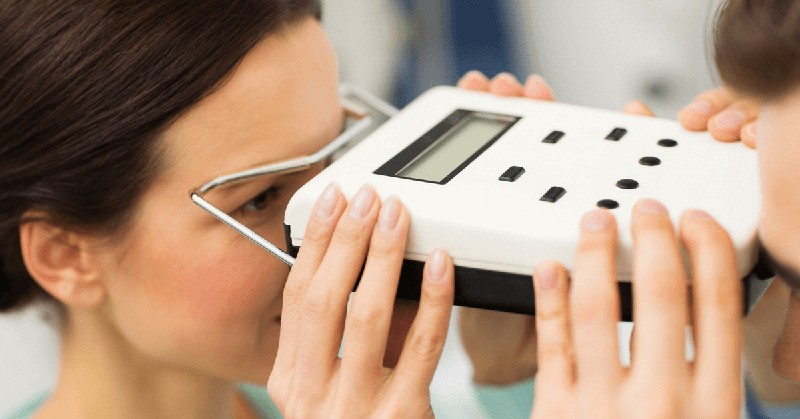Is Self-Manage the Crucial to a Lengthy, Healthier Daily life? | Overall health Information
By Alan Mozes HealthDay Reporter

(HealthDay)
THURSDAY, Jan. 7, 2021 (HealthDay News) — If your kids are well-behaved, do they stand a larger chance of possessing healthier, joyful life as grown ups?
Soon after tracking just over 1,000 New Zealanders from start to the age of 45, investigators observed that kids who ended up intention-oriented and better ready to restrain their feelings, behavior and feelings turned out to have more healthy bodies and brains by the time they strike middle age.
“We identified that as grownups, at age 45, children with much better self-control aged additional slowly but surely,” mentioned analyze author Leah Richmond-Rakerd, an assistant professor of psychology at the University of Michigan, in Ann Arbor. “Their bodies and brains were healthier and biologically young. We also observed that they had made a lot more overall health, monetary and social reserves for outdated age.”
Why? Richmond-Rakerd stated her workforce thinks it has to do with owning “far better emotional regulation to offer with lifestyle. They strategy greater so that they expertise much less crises and difficulties. And their response to difficulties is far more calculated and considerate when crises do arise.”
James Maddux is a senior scholar with the Centre for the Development of Properly-Staying at George Mason University in Virginia. Nevertheless not a portion of the examine workforce, he suggested that the findings might stem from a youthful potential to delay gratification.
“So quite a few behaviors that lead to weak wellness are the outcome of a relative incapacity to delay gratification,” stated Maddux, which means the lack of ability to forgo smaller, shorter-expression rewards in favor of extra significant long-time period rewards. Examples of short-expression indulgences, he famous, could include things like cigarette smoking, binge consuming, overeating, unsafe intercourse and going to get-togethers in the midst of a pandemic.
The analyze team gauged self-control between the ages of 3 and 11 by enlisting lecturers, mothers and fathers and the enrolled young children to evaluate every kids’ impulsivity, irritation tolerance and skill to persist in attaining objectives.
Then, a mix of bodily examinations, interviews and brain scans were being carried out at age 45 to ascertain physical health and fitness and social well-getting as an adult.
The investigators found that people who had bigger self-command when younger had fewer indications of mind getting old by center-age, had been much better informed about each health and finances, and experienced formulated superior social competencies.
Importantly, the staff located that the findings held up even right after accounting for both equally family members cash flow and IQ scores.
“We ruled out the risk that self-management matters since little ones born into richer people have far better self-control, or because little ones with greater IQs have far better self-manage,” said Richmond-Rakerd.
And though acknowledging that “some children create self-manage extra effortlessly than other folks,” she stressed that the analyze also uncovered that “some persons shifted in their degree of self-management about time, suggesting that self-management may possibly be malleable, and subject to intervention.”
To that place, the researchers observed that it was not just childhood self-manage that influenced well-staying afterwards in lifestyle. The analyze authors also concluded that “adults with far better self-control formulated more well being, monetary and social reserves for outdated age, even if they did not have so a great deal self-regulate as kids,” Richmond-Rakerd said.
“We assume this has critical implications,” she said. “Even if we did not training superior self-management in early daily life, there may possibly however be options to prepare ourselves for getting old when we are in our 40s and 50s. It can be not much too late.”
Maddux agreed. “There is some evidence that, like just about all aspects of character, the potential for self-control is partly ‘wired in’ by your DNA,” he mentioned.
“But there is also a large amount of evidence that self-control, or what is commonly called self-regulation, consists of a set of distinct techniques that can be acquired and practiced so that one gets improved at them, like any other set of abilities,” he added.
“This suggests that everyone can master how to exert far better self-handle,” whether or not which is as a result of moms and dads “modeling” it for their kids or grownups getting greater self-regulation capabilities later on in life, Maddux said.
“Of program, the extended you’ve been training negative self-regulation behavior, the extra difficult it will be to unlearn them,” Maddux said. “But it can be done.”
The report was published on the net Jan. 4 in the Proceedings of the National Academy of Sciences.
Sources: Leah S. Richmond-Rakerd, PhD, assistant professor of psychology, University of Michigan, Ann Arbor James E. Maddux, PhD, college professor emeritus of medical psychology, and senior scholar, Middle for the Development of Nicely-Currently being, George Mason University, Fairfax, Va. Proceedings of the National Academy of Scienc
es, Jan. 4, 2021, on line
Copyright © 2021 HealthDay. All rights reserved.






